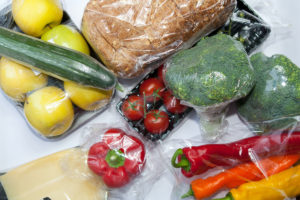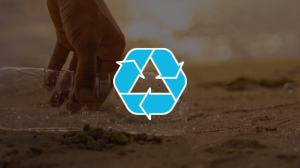Amazon’s colossal plastics problem
Air pillows, bubble wrap and other plastic packaging used in the approximately seven billion parcels delivered worldwide by online retailer Amazon in 2019 contributed some 211 million kilograms of plastic to the planet’s pollution problem.
According to a report released by Oceana Canada last week, the waste created by Amazon’s plastic packaging, which is based on an analysis of e-commerce packaging data, would circle the Earth more than 500 times.
Combined with findings from a recent study published in Science, it’s estimated that as much as 10 million kilograms of Amazon’s plastic packaging polluted the world’s freshwater ecosystems in 2019.
Amazon’s Canadian plastic footprint is disproportionately large, Oceana’s study found, generating an estimated 21.3 million kilograms of plastic waste in Canada in 2019. That’s 1.2 times more than in India, and more than Japan, Brazil, Spain and Mexico combined.
The online retail giant accounts for about 48 per cent of the Canadian e-commerce market, with estimated sales in the $9 billion range last year.
Says Josh Laughren, executive director, Oceana Canada, which is calling on Amazon to provice plastics-free packaging: “Given how much value Amazon is getting from Canadian consumers – including from people in remote communities where few other options are available – it has a moral obligation to offer plastic-free packaging to ensure this doesn’t come at a great cost to the health of our oceans and environment.”
The retailer does provide an option for minimal plastic packaging when requested by customers. It also offers “frustration-free packaging” made of 100 per cent recyclable materials. But most customers are not aware of those programs.
As an immediate measure, Oceana says, Amazon should provide customers the option of plastic-free packaging at checkout. Oceana says that customers in Canada, the U.S. and UK who enquire about how to recycle Amazon packaging are sometimes referred by the company to municipal recycling programs.
Amazon also uses “flexible packaging,” that the company says is made of plastic that is recyclable. But Oceana says the company has not released data to support its claim that the packaging does not harm the environment.
The company has moved away from single-use plastic packaging in India. The company has also made a pledge to reduce its carbon footprint and has developed lightweight paper packaging for some of its products, as well as shifting to shipping of its products in cardboard boxes.
But with the pandemic forcing many to rely on the company for products – the company reported a 40 per cent increase in sales in the second quarter of 2020 – Oceana says it’s urgent that Amazon deal with its plastic problem sooner rather than later.
Recent studies estimate that 90 per cent of all seabirds and 52 per cent of all sea turtles have ingested plastic. Scientific reports also estimate that only nine per cent of all plastic produced in the world is recycled. The rest ends up in landfills, is incinerated or in the environment.



